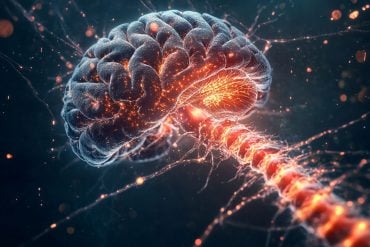Summary: A new study reveals education can be leveraged to help enhance a person’s economic rationality.
Source: Cornell University.
There has been interest across behavioral and social sciences – including psychology, economics and education – in whether people are born to be rational decision-makers or if rationality can be enhanced through education.
Published in Science, a new study led by Hyuncheol Bryant Kim, assistant professor of policy analysis and management at Cornell University, found that education can be leveraged to help enhance an individual’s economic decision-making quality or economic rationality.
“Using a randomized controlled trial of education support and laboratory experiments that mimic real-life examples, we established causal evidence that an education intervention increases not only educational outcomes but also economic rationality in terms of measuring how consistently people make decisions to seek their economic goals,” Kim said.
Kim and his colleagues examined this hypothesis through a controlled trial of education support in Malawi, arranged by a nongovernmental organization, which provided financial support for education in a sample of nearly 3,000 female ninth and 10th graders.
“We found that those who took part in the education intervention had higher scores of economic rationality, suggesting that education is a tool for enhancing an individual’s economic decision-making quality,” Kim said. “While we know that schooling has been shown in previous work to have positive effects on a wide range of outcomes, such as income and health, our work provides evidence of potentially additional benefits coming from improvements in people’s decision-making abilities.”
Traditional economic analysis assumes that humans make rational choices. However, mounting evidence shows that people tend to make systematic errors in judgment and decision-making and that there is a high level of diversity in how rational individuals are.
Kim points out that most other research on improving the quality of decision-making targets the reduction of decision biases. For example, behavioral economists have urged policymakers to intervene in markets and restructure choice environments, the way that a decision is presented, without restraining people’s freedom of choice.

“We take a different stand: proper policy tools can enhance general capabilities of decision making,” Kim said. “Education can better equip people for high-quality decision-making for their lives.”
“Governments must never neglect investments in human capital of their citizens,” he said, noting that Malawi is ranked one of the lowest in the world in human capital – the economic value of citizens. “In addition, this evidence provides an additional rationale for investment in education in resource constrained settings such as Malawi and other developing nations.”
Source: Rachel Rhodes – Cornell University
Publisher: Organized by NeuroscienceNews.com.
Image Source: NeuroscienceNews.com image is credited to Hyuncheol Kim.
Original Research: Abstract for “The role of education interventions in improving economic rationality” by Hyuncheol Bryant Kim, Syngjoo Choi, Booyuel Kim, and Cristian Pop-Eleches in Science. Published October 3 2018.
doi:10.1126/science.aar6987
[cbtabs][cbtab title=”MLA”]Cornell University”Education Improves Decision Making Ability.” NeuroscienceNews. NeuroscienceNews, 7 October 2018.
<https://neurosciencenews.com/education-decision-making-9972/>.[/cbtab][cbtab title=”APA”]Cornell University(2018, October 7). Education Improves Decision Making Ability. NeuroscienceNews. Retrieved October 7, 2018 from https://neurosciencenews.com/education-decision-making-9972/[/cbtab][cbtab title=”Chicago”]Cornell University”Education Improves Decision Making Ability.” https://neurosciencenews.com/education-decision-making-9972/ (accessed October 7, 2018).[/cbtab][/cbtabs]
Abstract
The role of education interventions in improving economic rationality
Schooling rewards people with labor market returns and nonpecuniary benefits in other realms of life. However, there is no experimental evidence showing that education interventions improve individual economic rationality. We examine this hypothesis by studying a randomized 1-year financial support program for education in Malawi that reduced absence and dropout rates and increased scores on a qualification exam of female secondary school students. We measure economic rationality 4 years after the intervention by using lab-in-the-field experiments to create scores of consistency with utility maximization that are derived from revealed preference theory. We find that students assigned to the intervention had higher scores of rationality. The results remain robust after controlling for changes in cognitive and noncognitive skills. Our results suggest that education enhances the quality of economic decision-making.







